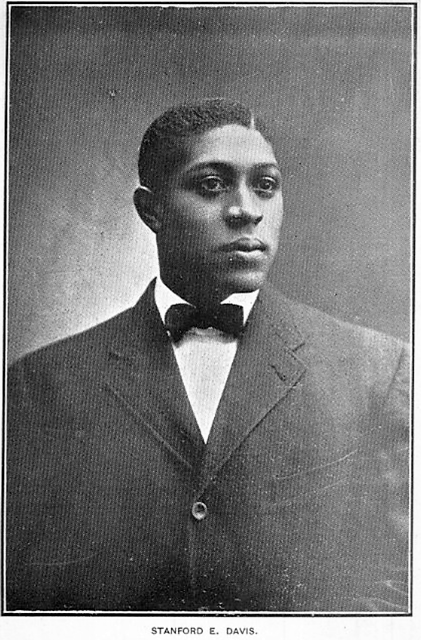
Priceless Jewels
Stanford E. Davis is perhaps the first University of Maryland Eastern Shore alumnus to be a formally published belletrist — or “man of letters.”
Davis’s 135-page book of poetry, Priceless Jewels (Knickerbocker Press, New York; 1911), is considered one of the rarer books of Delaware literature, according to John P. Reid, a collector who specializes in books written about as well as by people from the First State.
Davis attended Princess Anne Academy (as UMES was known at the time) from 1905 to 1907 and graduated in that year, Reid’s research shows. Unfortunately, few, if any, records of students at the academy survive from that era.
Born in Whaleyville, Md., Davis grew up in Georgetown, Del., where he attended school — since one of his “letters of honor” included in the book is signed by “John D. Brooks, Superintendent of free schools, white and colored, of Sussex County, Delaware.”
Brook’s letter says, in part, “You have an exceptional Poetical talent. To find a Poet gives me greater pleasure than to find a nugget of gold among the sands of Sussex. . . . May the shades of Dunbar rest heavily upon thee.”
In a biography on Reid’s web site, “Collecting Delaware Books,” he notes “Dunbar” refers to Paul Lawrence Dunbar, poet and novelist.
Brooks is credited with editing some of Davis’s manuscript. The forward of the book says Dr. and Mrs. V. S. Collins were instrumental in encouraging and facilitating Davis’ education. Others Georgetown people who also helped Davis were: Dr. James Chipman, a druggist, Dr. J. Hammond, lawyer Daniel Layton, Jr., former mayor Charles Moore and Miss Emma Wright.
When Davis wrote the poems is unclear. A few appear to have been written while he worked at the Hotel Dennis in Atlantic City, N.J., some while he studied at Princess Anne Academy and some following Dunbar’s death in 1906. An Aug. 3, 1911 newspaper article published by the (Wilmington, Del.) Evening Journal reported that President William Howard Taft personally extended him congratulations on his work in 1909, a fact that was repeated in his death notice.
The book’s forward acknowledges support from several people in Atlantic City. It also hints at a smaller book, Lyrics of Consolation. Some of the poems in Priceless Jewels are religious, others inspirational. Still others celebrate everyday life of his rural childhood.
A March 30, 1948 news article about his death published in The Salisbury Times says “for many years he operated a cleaning and pressing establishment in Georgetown and later was an employee of the Baltimore and Ohio Railroad Co.”
Principal Frank Trigg, his patron at Princess Anne Academy, urged him to write more race poems, though several in the book clearly are, Reid notes.
Like Dunbar, Davis wrote in standard English and dialect. Dialect was used by many popular writers and poets at the turn of the century, Reid notes.
Stanford Elmer Davis died March 26, 1948 in Georgetown. Salisbury’s daily newspaper reported he was 59.
Ode to Procrastination
Why do you hold God’s priceless gems
In your filthy slums, Procrastination?
How many rubies and diamonds
Have been lost in your fascination?
I glance your mold sods and spacious hems,
Your sinful caves daily sink millions!
How many talents lay dormant
In your soothing beds of ease contented Why not let them arise and shine?
How long will you hold them down lamented?
Let them come forth for God, and grant
His blessings to nations who wait them!
There may be a Shakespeare, a Burns,
Whittier, or Dunbar held in your lands Or some other Moses the world
Has not yet seen, covered in your sands,
Hindered by your dares and cruel spurns,
Which forces them to sleep deeper!
The University of Maryland Eastern Shore extends its gratitude to John P. Reid of Collecting Delaware Books, whose biographical sketch of Stanford E. Davis reproduced here is combined with other information from the Frederick Douglass Library archives.

